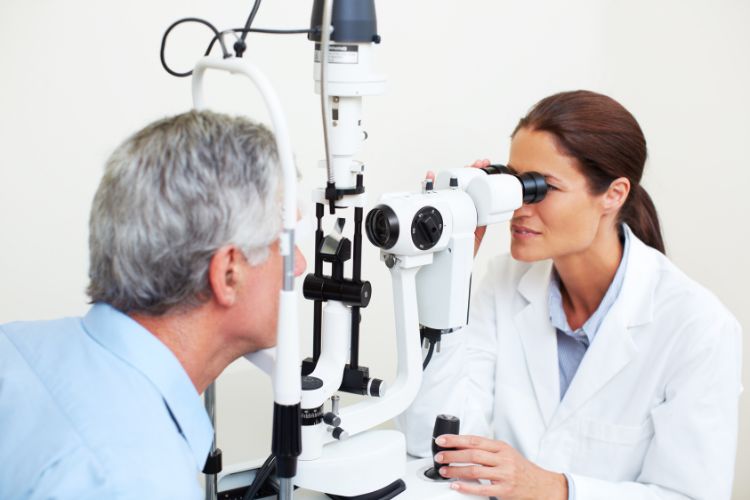Regular eye check-ups are essential for maintaining good vision and overall eye health. These routine examinations, conducted by eye care professionals, help detect potential problems early on, allowing for timely intervention and prevention of serious conditions. This mini blog explores the significance of routine eye check-ups, what to expect during an examination, and why they should be an integral part of everyone’s healthcare routine.
Routine eye check-ups play a vital role in the early detection and prevention of various eye conditions. Many eye diseases, such as glaucoma and age-related macular degeneration, can progress silently without noticeable symptoms until irreversible damage has occurred. Regular examinations allow eye care professionals to identify these conditions in their early stages when treatment options are more effective and the chances of preserving vision are higher. Additionally, eye exams can reveal signs of other underlying health issues like diabetes and hypertension, enabling early detection and intervention.
During a routine eye check-up, several components are typically included to evaluate your eye health comprehensively. These may involve:
- Visual Acuity Testing: This assesses the sharpness and clarity of your vision, usually using an eye chart.
- Refraction Test: This determines the appropriate prescription for corrective lenses if needed.
- Eye Muscle Movement Evaluation: The doctor checks the coordination and strength of the muscles that control eye movement.
- Intraocular Pressure Measurement: This test screens for glaucoma by measuring the fluid pressure inside the eye.
- Retinal Examination: This involves examining the back of the eye, including the retina and optic nerve, using specialized equipment.
- Other Tests: Depending on your specific needs and risk factors, additional tests may be conducted, such as a visual field test, corneal mapping, or imaging tests.
The frequency of routine eye check-ups depends on various factors, including age, medical history, and existing eye conditions. As a general guideline, it is recommended to have an eye examination every one to two years, even if you have no apparent vision problems. Infants and children, individuals over 40, those with a family history of eye disease, and people with chronic conditions like diabetes should undergo more frequent screenings.
Routine eye check-ups offer numerous benefits. They allow for early detection and intervention, potentially preventing vision loss. Regular examinations also ensure that any changes in your vision are promptly addressed, leading to timely prescription updates for glasses or contact lenses. Additionally, eye care professionals can offer guidance on proper eye care, including recommendations for protective eyewear, screen time management, and lifestyle modifications to maintain optimal eye health.
Don’t take your vision for granted. Routine eye check-ups are an essential part of maintaining good eye health and detecting potential issues early on. By including regular examinations in your healthcare routine, you can protect your vision, prevent irreversible damage, and identify any underlying health conditions that may impact your eyes. Remember, early detection and prevention are key to preserving your eyesight. Schedule your next eye check-up and prioritize your eye health today!
Take care of your eyes and prioritize your vision today! Schedule your next routine eye check-up at Shanta Medical Centre and ensure the health of your eyes. Our experienced eye care professionals in Matunga (W) are dedicated to preserving your vision and providing comprehensive eye care services. Contact us at 73640 03100 | 73620 03200 | 022 3508 4817 to book an appointment.
To visit Shanta Medical Centre Click here
Don’t wait until it’s too late – safeguard your vision with regular eye check-ups!

